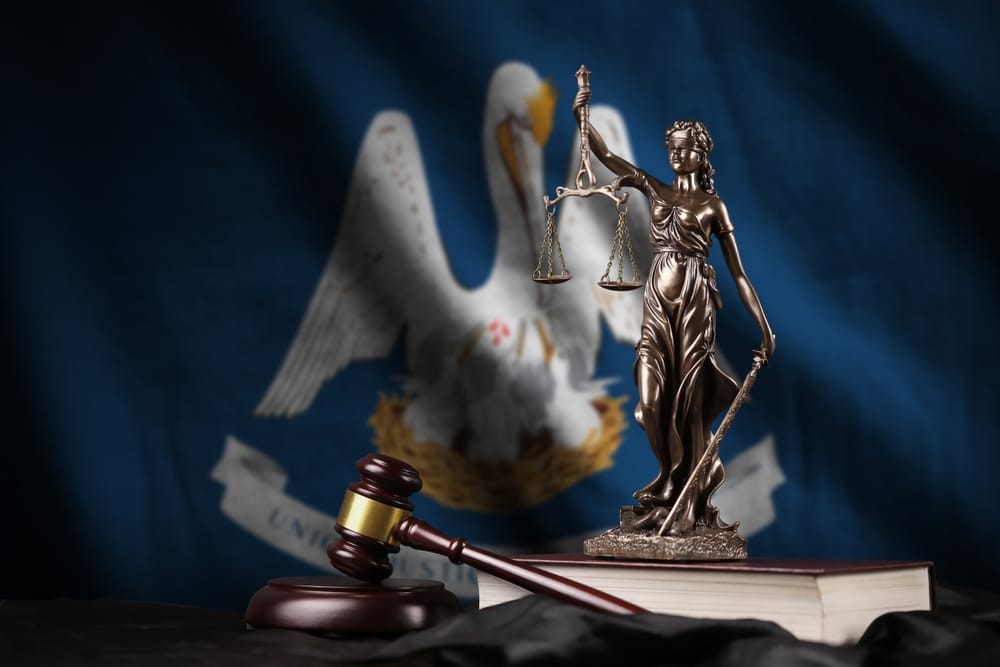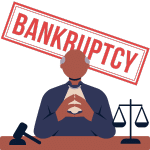Louisiana Bankruptcy Guide

Introduction
Louisiana’s bankruptcy system reflects the state’s unique legal heritage and specific challenges, from its civil law foundation to recurring natural disasters and specialized industries. This guide provides detailed information about filing bankruptcy in Louisiana, including state-specific exemptions, procedures, and special considerations.
Louisiana stands alone among U.S. states in using a civil law system based on the Napoleonic Code, which significantly impacts bankruptcy proceedings, particularly regarding property rights and community property rules. Understanding these distinctions is crucial for successful bankruptcy filing in Louisiana.
The state’s vulnerability to hurricanes and flooding has led to specific provisions in bankruptcy law protecting disaster-related benefits and insurance proceeds. These protections help ensure that residents can maintain stability during recovery periods while addressing their financial obligations.
Louisiana’s diverse economy, from oil and gas production to commercial fishing and tourism, creates unique considerations in bankruptcy proceedings. Special provisions exist to protect industry-specific assets and income sources essential to these traditional Louisiana industries.
Whether you’re dealing with personal debt, recovering from natural disasters, or managing business obligations, understanding Louisiana’s specific bankruptcy provisions is essential for protecting your rights and achieving the best possible outcome in your case.

State Bankruptcy Courts
Eastern District of Louisiana
The Eastern District, headquartered in New Orleans, serves the state’s southeastern parishes and handles a significant portion of Louisiana’s bankruptcy cases. The court’s website (www.laeb.uscourts.gov) provides essential resources for filers and attorneys.
This court has extensive experience with hurricane-related issues and maritime industry cases, with specialized procedures for disaster-related filings and emergency situations.
The New Orleans location is equipped to handle complex cases involving multiple jurisdictions and international maritime law considerations.
Middle District of Louisiana
Based in Baton Rouge, the Middle District bankruptcy court (www.lamb.uscourts.gov) serves the capital region and surrounding parishes. This court handles many cases involving state government employees and industries connected to the Mississippi River.
The Middle District has developed specific expertise in oil and gas industry-related bankruptcies, given the concentration of petrochemical businesses in its jurisdiction.
Local rules address the unique aspects of Louisiana’s civil law system and its impact on bankruptcy proceedings.
Western District of Louisiana
The Western District maintains its headquarters in Shreveport with additional locations in Alexandria, Lafayette, Lake Charles, and Monroe (www.lawb.uscourts.gov). This extensive coverage ensures accessibility for residents across the district’s large geographic area.
Each location understands local industry needs, from oil field operations to agricultural businesses, and provides specialized services for their communities.
The court system maintains flexibility for natural disaster impacts, with procedures for temporary relocations and electronic filing options during emergencies.
Louisiana Property Exemptions
Homestead Exemption
Louisiana provides a homestead exemption of $35,000 in equity for a primary residence, including manufactured homes. This protection requires filing a formal homestead declaration, reflecting Louisiana’s civil law requirements.
The homestead protection extends to insurance proceeds from hurricane and flood damage, a crucial provision given Louisiana’s vulnerability to natural disasters. This protection helps ensure that residents can rebuild or relocate while maintaining their exemption benefits.
To qualify for the homestead exemption, property owners must file appropriate declarations with their parish recorder’s office. The timing of this filing can be critical, particularly when facing imminent bankruptcy or natural disasters.
Personal Property Exemptions
Vehicle equity up to $7,500 can be protected, helping ensure that residents maintain reliable transportation. This protection is particularly important in areas with limited public transportation options.
Personal items receive varying levels of protection, with full value exemptions for clothing and family photos. Musical instruments up to $2,000 in value and household goods up to $7,500 are protected, reflecting Louisiana’s rich cultural heritage.
One firearm per household receives protection, and tools or equipment necessary for earning a living are protected. Food and supplies for 60 days are exempt, acknowledging the importance of emergency preparedness in hurricane-prone regions.
Special Louisiana Provisions
Community property laws significantly impact bankruptcy proceedings in Louisiana. All community property must be included in bankruptcy filings, even if only one spouse files, reflecting the state’s unique civil law approach to marital property.
The civil law system creates distinct requirements for property characterization and transfer that differ from common law states. Understanding these distinctions is crucial for proper bankruptcy planning.
Hurricane recovery benefits and flood insurance proceeds receive special protections, ensuring these vital resources remain available for their intended purposes. Oil and gas rights require particular attention due to their significant role in Louisiana’s economy.
Wage Exemptions
Louisiana protects the greater of 75% of disposable earnings or 30 times the federal minimum wage. Enhanced protections exist for heads of household, helping families maintain financial stability during bankruptcy.
Special protections apply to seafood industry workers, recognizing the unique payment structures and seasonal nature of this traditional Louisiana industry.
The wage exemption system accounts for irregular income patterns common in Louisiana’s seasonal industries, from tourism to agriculture.
Tools of Trade
Louisiana provides protection for up to $7,500 in tools and equipment used in a person’s profession or trade. This exemption is particularly important for self-employed individuals and skilled workers.
Fishing equipment receives special protection, acknowledging the importance of commercial fishing to Louisiana’s economy. Similar protections exist for oil field worker equipment.
Professional tools and books necessary for continuing a trade or profession are protected, helping ensure that individuals can maintain their ability to earn a living during and after bankruptcy.
Special Louisiana Considerations
State-Specific Requirements
All bankruptcy filers must complete approved credit counseling from providers familiar with Louisiana’s unique legal system and economic conditions.
Residency requirements must be carefully considered, especially given the displacement that can occur during hurricane seasons.
The civil law system creates unique documentation requirements and procedural considerations not found in other states.
Median Income Thresholds
As of 2024, Louisiana’s median income thresholds are $51,482 for individuals, $63,954 for families of two, $75,674 for families of three, and $88,486 for families of four.
Each additional family member adds $9,900 to the threshold amount.
These thresholds determine Chapter 7 eligibility and Chapter 13 plan duration.
Legal Aid Organizations
Southeast Louisiana Legal Services (877-521-6242) provides comprehensive bankruptcy assistance for low-income residents.
Acadiana Legal Service Corporation specializes in helping residents in French-speaking communities.
The Louisiana Civil Justice Center and Pro Bono Project offer additional support services statewide.
Louisiana-Specific Timeline
Credit counseling must be completed within 180 days before filing, with special provisions for emergency filings during natural disasters.
The Meeting of Creditors typically occurs 21-40 days after filing, though hurricane season may affect scheduling.
Special accommodations exist for flood events and other natural disasters that might impact filing deadlines or court appearances.
Credit Counseling Agencies
Approved agencies must be used for required credit counseling and debtor education courses. The Department of Justice maintains an updated list of approved providers.
Many agencies offer services in French and provide specialized disaster recovery counseling.
Local agencies understand Louisiana’s unique economic challenges and cultural considerations.
State-Specific Forms
Louisiana requires additional forms reflecting its civil law system and unique property rights.
Special forms exist for declaring hurricane and disaster-related claims and benefits.
Oil and gas interest declarations require specific documentation.
Attorney Requirements
Attorneys must be admitted to practice in Louisiana and understand its civil law system.
Federal court admission is required for bankruptcy practice.
Electronic filing certification must be maintained.
Filing Fees
Chapter 7 filing fees are $338, while Chapter 13 fees are $313.
Fee waivers and installment payments are available for qualifying individuals.
Emergency filing provisions may affect fee payment timing.
Common Questions in Louisiana
Community Property Impact
All community property must be included in bankruptcy filings, regardless of which spouse files.
Louisiana’s civil law system creates unique property rights that affect bankruptcy proceedings.
Proper property characterization is crucial for protecting spousal rights.
Natural Disaster Considerations
Special filing provisions exist for hurricane and flood events.
Insurance proceeds receive specific protections to ensure availability for recovery.
FEMA benefits coordination requires careful attention during bankruptcy proceedings.
Oil and Gas Rights
Mineral rights receive special protection under Louisiana law.
Royalty income treatment varies based on the nature of the interest.
Future production rights must be carefully considered in bankruptcy planning.
Special Circumstances
Natural Disasters
Hurricane provisions include emergency filing procedures and deadline extensions.
Flood considerations affect property valuations and exemption claims.
Insurance claim protection helps ensure recovery funds remain available.
Industry Considerations
Oil and gas industry participants receive specialized treatment for certain assets.
Fishing industry protections acknowledge seasonal income patterns.
Tourism impact on income is considered in payment plans.
Cultural Aspects
Civil law traditions significantly influence bankruptcy procedures.
French and Cajun cultural considerations affect communication and documentation.
Rural bayou communities may require special accommodations for court access.
Seasonal celebrations’ impact on income and expenses is recognized.
Conclusion
Successfully navigating bankruptcy in Louisiana requires understanding both federal bankruptcy law and the state’s unique legal system and circumstances. From civil law requirements to natural disaster provisions, Louisiana’s bankruptcy system provides specific protections while addressing local needs.
Louisiana’s strong protections for disaster recovery benefits and industry-specific assets help ensure that residents can maintain stability while addressing financial challenges. These provisions reflect the state’s commitment to protecting its citizens during vulnerable times.
The availability of specialized exemptions and procedures for Louisiana’s traditional industries helps preserve important economic activities while providing paths to financial recovery. Understanding these provisions is crucial for maximizing bankruptcy benefits.
Local resources, including legal aid organizations and approved credit counseling agencies, provide essential support for navigating Louisiana’s complex bankruptcy system. These resources are particularly valuable for residents dealing with disaster recovery or industry-specific issues.
Professional guidance from attorneys familiar with Louisiana’s civil law system and federal bankruptcy law is particularly important given the state’s unique legal framework. Working with qualified professionals helps ensure proper protection of your rights throughout the bankruptcy process.
Success in Louisiana bankruptcy cases often depends on careful timing and thorough understanding of state-specific provisions. Whether dealing with natural disasters, community property issues, or industry-specific concerns, proper preparation and guidance can significantly improve outcomes.
